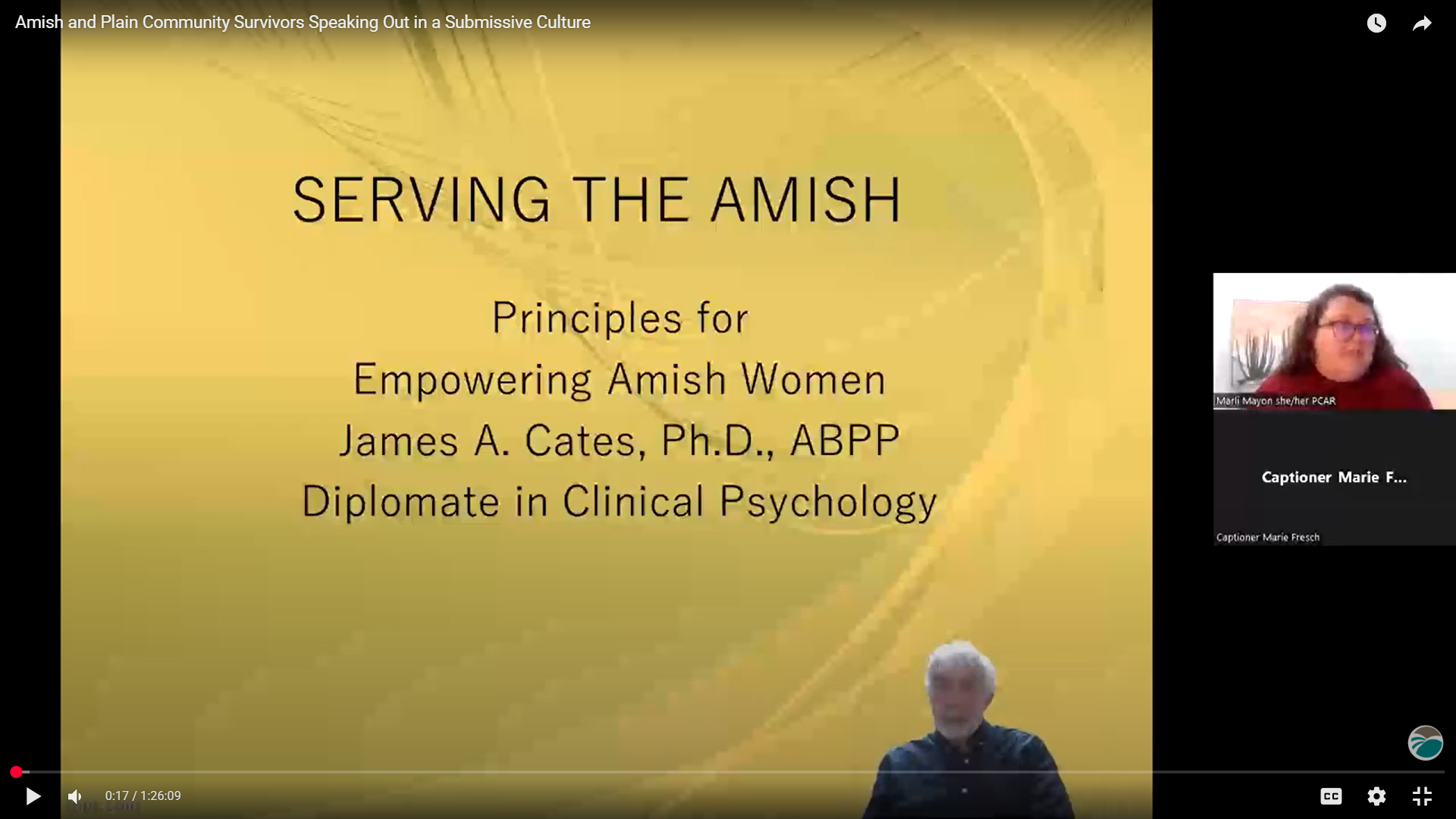
(1hr 26min) This webinar provides useful information from scholar James Cates, author of Serpent in the Garden and Serving the Amish, on understanding the Amish and Plain community and the cultural practices that impact the prevalence of sexual violence.
This project was supported by the PCCD subgrant #36156 by the PA Commission on Crime and Delinquency.

(2hr 17min) This webinar details the ways in which increased internet and electronic device usage has normalized the sharing of intimate images depicting both adults and minors. It explores Pennsylvania’s criminal laws regulating the dissemination of intimate images, discussing ways in which predators exploit and extort victims, and share internet safety strategies as well as safety resources for survivors, parents, and service providers.
This project was supported by the PCCD subgrant #44566 by the PA Commission on Crime and Delinquency.
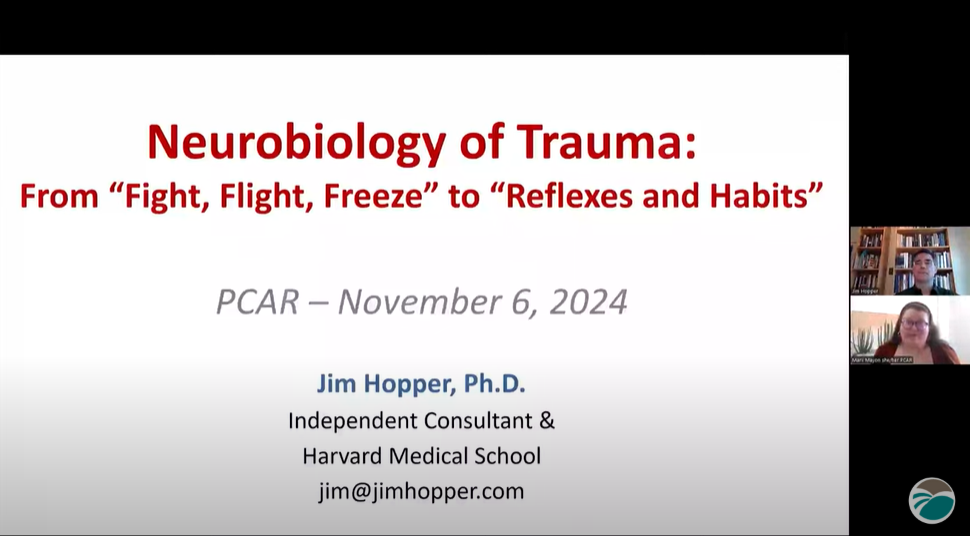
(1hr 26min) Traumatic experiences have immediate and powerful impacts on the human brain. This webinar explains, in very accessible ways, how stress and trauma can alter brain functioning during sexual assaults and other traumas. Participants will learn about the key brain circuitries impacted by stress and trauma, including the prefrontal cortex and the defense circuitry. Participants will gain increased understanding of brain-based experiences and behaviors – including why "reflexes and habits" is better than "fight, flight, freeze,..." for understanding common behaviors – and learn important implications for their work with victims of sexual assault and other violence. This webinar provides a critical foundation for learning and applying trauma-informed responses with people who have been assaulted.
This project was supported by the PCCD subgrant #36156 by the PA Commission on Crime and Delinquency.
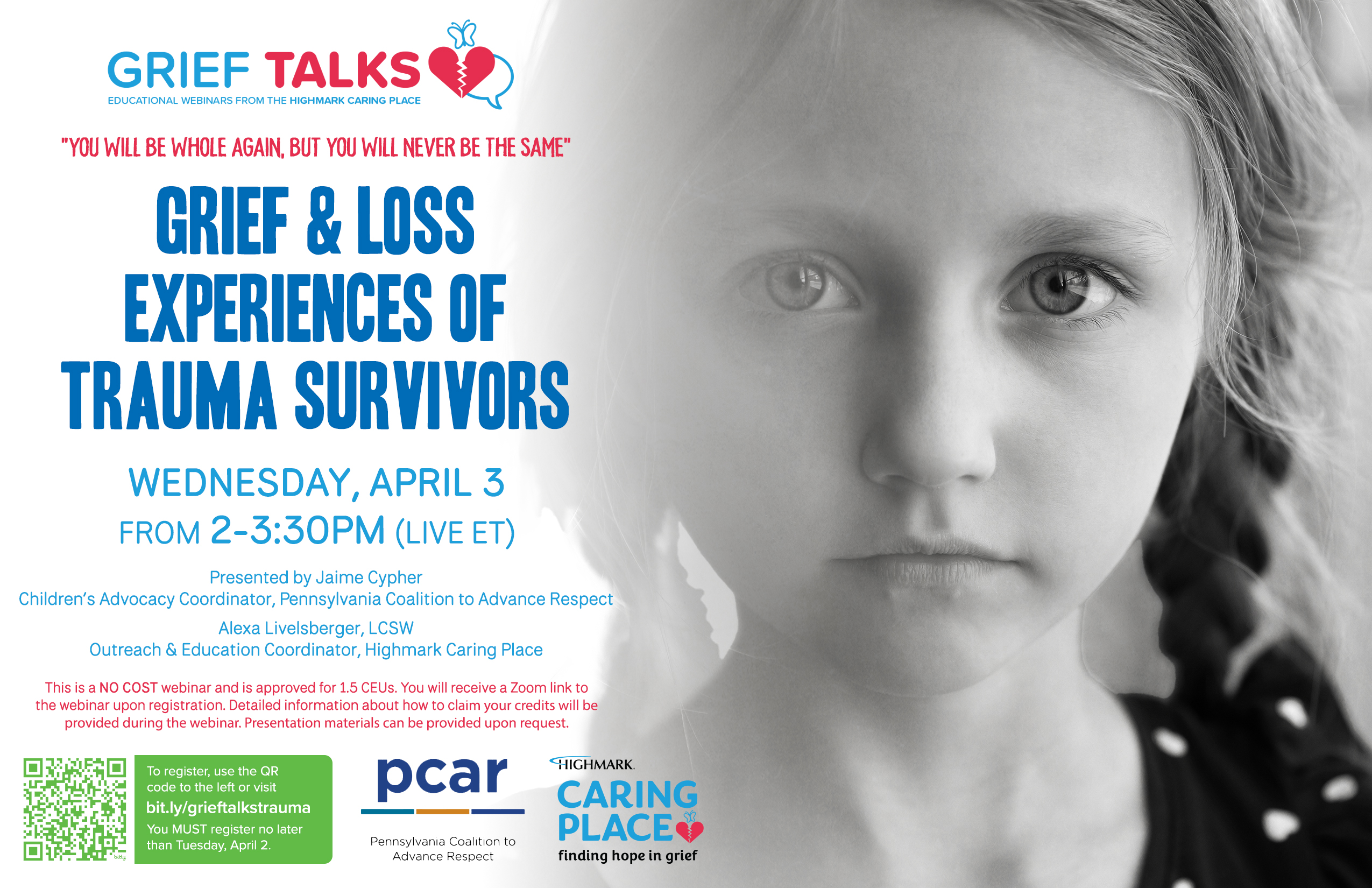
(1hr 31min) We often find similarities in the experiences of individuals impacted by trauma and grief. Both trauma and grief can impact a person across a range of time and with varying intensity. They can both affect the surviving persons long term, even for a lifetime. And both trauma and grief can lead to profound feelings of loss and altered perspectives for those impacted. What are these connections between trauma and grief? Join this webinar as we explore the grief and loss experiences of trauma survivors. Learn how to provide care and support for youth and families by recognizing and understanding how grief and loss is often woven through their experience of trauma.
This publication was funded by the Department of Human Services. The opinions, findings, conclusions, and recommendations expressed in this publication/program/exhibition are those of the author(s) and do not necessarily reflect the views of DHS.
(1hr 27 min)
Grief and loss impact our daily lives, both in and out of
the workplace. This training will help you to identify experiences of grief
and loss and their impact on your work. Together we’ll explore ways to care
for ourselves, our colleagues, and influence organizational culture around
grief and loss in professional spaces.
Answering the Call: Supporting Survivors of Sexual Harassment, Abuse, & Assault
(1:23 min) During this recorded webinar, Dr. Courtney Alvarez explores developmentally-appropriate strategies for interviewing children and adolescents who have experienced sexual abuse and other forms of trauma.
This project was supported by subgrant No. 30269 awarded by PCCD, the state administering office for the SASP and STOP Violence Against Women Formula Grant Programs. The opinions, findings, conclusions, and recommendations expressed in this publication/program/exhibition
are those of the author(s) and do not necessarily reflect the views of PCCD or the U.S. Department of Justice, Office on Violence Against Women.
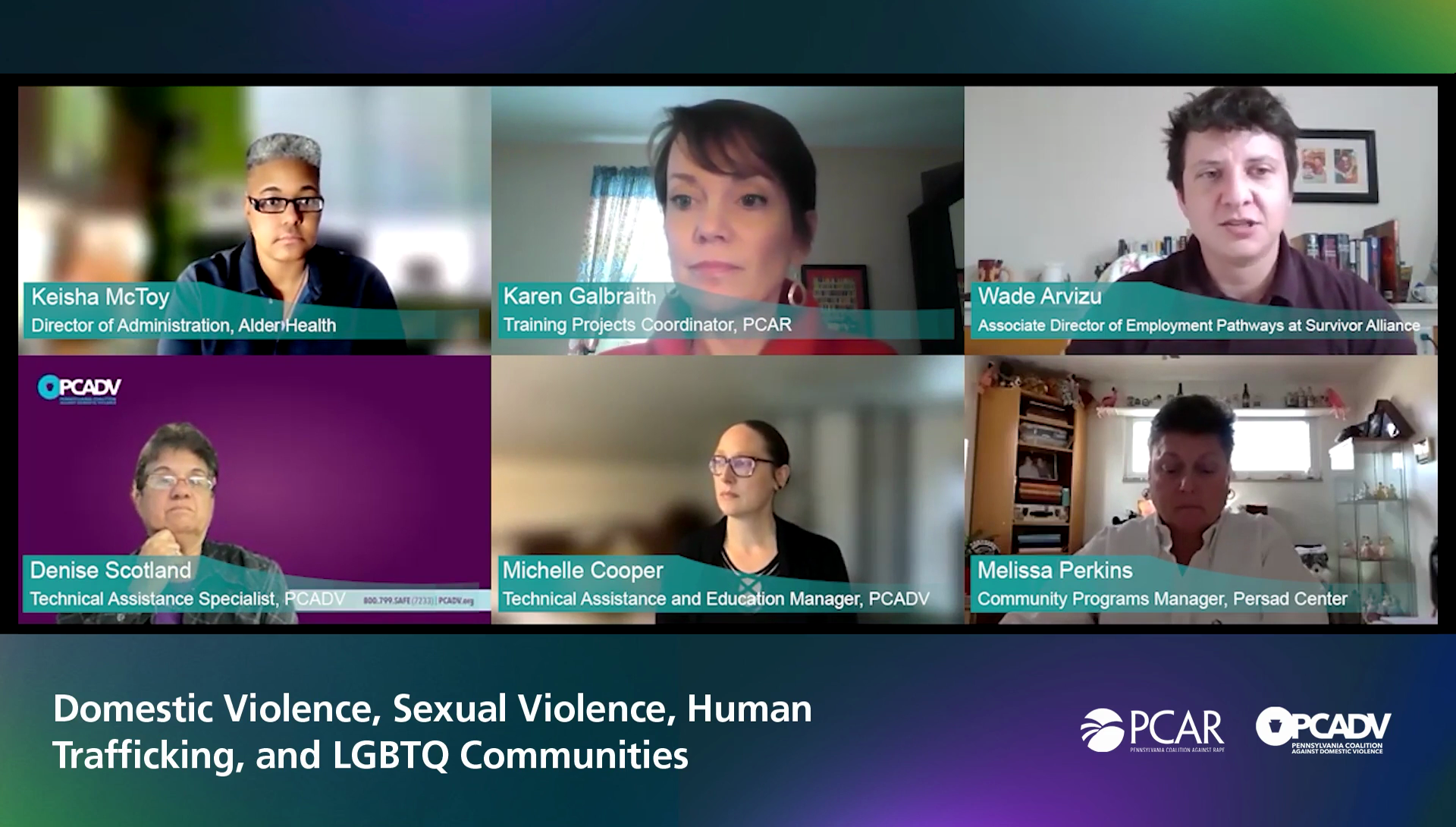
(1:16 min) Experts discuss the impacts of domestic
violence, sexual assault, and human trafficking in LGBTQ communities. Considerations for prevention and
intervention are explored.
This project was
supported by subgrant No. 30269 awarded by PCCD, the state administering
office for the SASP and STOP Violence Against Women Formula Grant
Programs. The opinions, findings,
conclusions, and recommendations expressed in this
publication/program/exhibition are those of the author(s) and do not
necessarily reflect the views of PCCD or the U.S. Department of Justice,
Office on Violence Against Women.
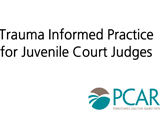 (50 min) This training is for Juvenile Court Judges and Court Personnel. This training is designed to inform Judges and Court Personnel of the effects of childhood trauma and to enhance the ability of the Court to recognize and positively interact with juveniles who are victims of trauma.
(50 min) This training is for Juvenile Court Judges and Court Personnel. This training is designed to inform Judges and Court Personnel of the effects of childhood trauma and to enhance the ability of the Court to recognize and positively interact with juveniles who are victims of trauma.

Crisis Intervention Training (CIT) is designed to equip advocates with the knowledge, skills, and sensitivity necessary to respond effectively and compassionately when working with survivors of sexual violence during a crisis. This can be taken supplementally after advocates have received their Sexual Assault Counselor (SAC) Training.
Objectives of training:
1. To provide rape crisis center staff with education on trauma, crisis concepts
2. To focus on trauma-informed survivor safety and stabilization through a culturally-inclusive lens
3. And address safety planning, professional responsibilities, and to advocate practicing your own individual care.
This publication was funded, in part, by the Family Violence Protection and Services Act grant. The opinions, findings, conclusions, and recommendations expressed in this publication/program/exhibition are those of the author(s) and do not necessarily reflect the views of FVPSA.